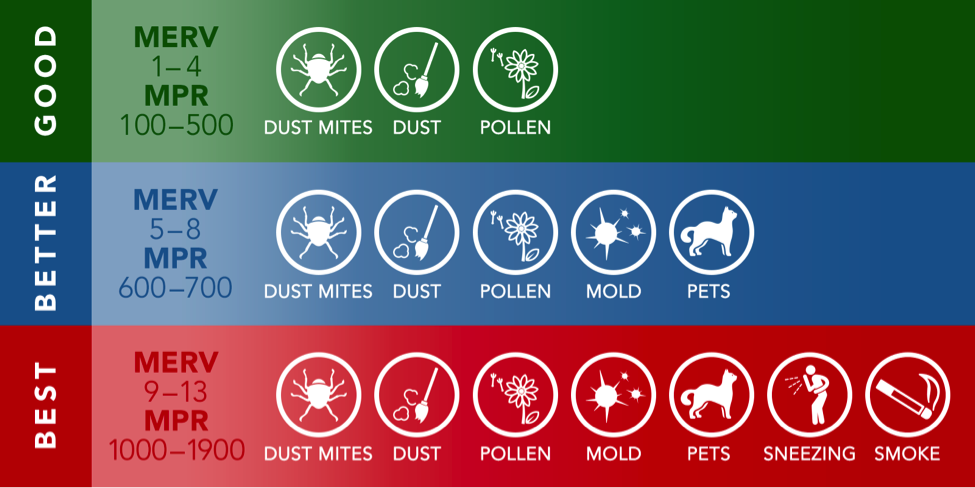Understanding MERV Ratings
When it comes to maintaining a clean and healthy indoor environment, the role of air filters cannot be overstated. One critical factor in selecting the right air filter is its MERV rating, or Minimum Efficiency Reporting Value. This rating system, established by the American Society of Heating, Refrigeration and Air-Conditioning Engineers (ASHRAE), provides a standardized way to evaluate the effectiveness of air filters in capturing airborne particles.
What is MERV?
MERV ratings range from 1 to 16, with higher numbers indicating a filter's ability to trap smaller particles and improve indoor air quality. Filters are rigorously tested under the ANSI/ASHRAE 52.2 standard to determine their MERV rating, ensuring a reliable measure of performance.
Low-Efficiency Filters
Low-efficiency filters, such as washable or disposable media filters, typically fall within the MERV 3 to 4 range. While these filters may be more affordable and easier to maintain, they often lack the capability to capture smaller pollutants effectively. Many low-efficiency options are not formally tested, meaning their actual performance may vary significantly.
Higher-Rated Filters
On the other end of the spectrum, higher-rated filters (MERV 7 to 16) excel at trapping a wider range of airborne particles, including dust mites, pet dander, pollen, mold spores, and even some bacteria and viruses. These filters are particularly beneficial in environments where air quality is paramount, such as hospitals, laboratories, and residential spaces with allergy sufferers.
MERV Rating Chart
To help you understand the MERV rating system better, here's a complete MERV rating chart that outlines particle sizes, efficiency levels, and recommended applications:
| MERV Rating | Particle Size (Microns) | Efficiency (%) | Recommended Applications |
|---|---|---|---|
| 1-4 | >10 | 0-20% | Residential, basic filtration |
| 5-8 | 3-10 | 20-70% | General HVAC systems |
| 9-12 | 1-3 | 65-90% | Commercial spaces, hospitals |
| 13-16 | <1 | 90-99.97% | Critical environments, cleanrooms |
Choosing the Right Filter
Selecting the appropriate MERV rating for your air filter depends on your specific needs. If you live in a household with pets or allergies, investing in a higher-rated filter can significantly improve your indoor air quality. Conversely, if you're using your filter in a standard residential setting without special considerations, a lower MERV rating may suffice. In summary, understanding MERV ratings is essential for making informed decisions about air filters. By considering the efficiency level and the types of particles you want to capture, you can enhance your indoor air quality and promote a healthier living environment.
